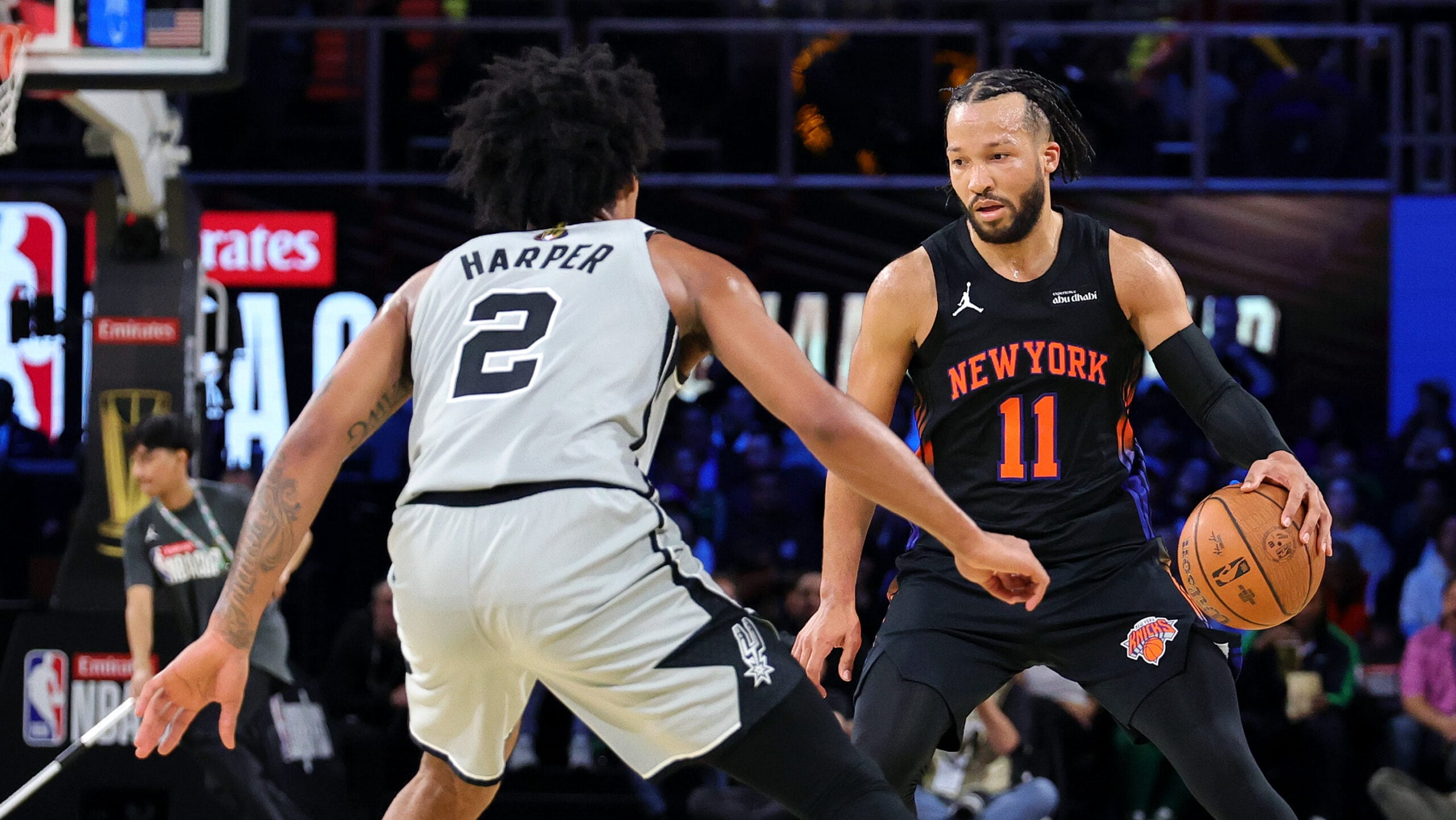Game 5 Recap: Nets 123, Celtics 109
The Brooklyn Nets took care of business on Tuesday night, finishing off their first-round series against the Boston Celtics with a 123-109 victory in Game 5. They probably let the Celtics (missing three starters for a second straight game) hang around for too long, but got the separation they needed with a remarkably efficient fourth quarter.
Here are three numbers to know about the Nets as they get ready for the Eastern Conference semifinals, where they will face the Milwaukee Bucks in a series that starts Saturday in Brooklyn.
Historically efficient offense
The stat: Over five games against the Celtics, the Nets scored 128.0 points per 100 possessions.
The context: That was the most efficient offense for any team in any series in the 25 years for which we have play-by-play data (362 total series through Tuesday).
Most efficient playoff series, since 1997
| Team | Year | Round | Opponent | Games | OffRtg |
|---|---|---|---|---|---|
| Brooklyn | 2021 | First round | Boston | 5 | 128.0 |
| Cleveland | 2018 | Conf. semis | Toronto | 4 | 126.7 |
| Cleveland | 2017 | Conf. finals | Boston | 5 | 126.7 |
| Orlando | 2010 | Conf. semis | Atlanta | 4 | 124.0 |
| Phoenix | 2005 | First round | Memphis | 4 | 123.3 |
OffRtg = Points scored per 100 possessions
The Nets were coming off the most efficient regular season in NBA history, where they scored 117.3 points per 100 possessions, even though Kevin Durant, James Harden and Kyrie Irving played together in only eight of their 72 games. And with all three stars playing all five games, the Nets have had the most improved offense in the first round, seeing a jump of 10.3 per 100 from the regular season.
The Nets led the shorthanded Celtics by just seven points after the third quarter of Game 5.. And then they scored 34 points on their first 16 possessions of the fourth, barely needing to run any offense. At one point, Durant, Irving and Harden hit 3-pointers from the same spot on the floor on three consecutive possessions. Durant’s came on an isolation against Tristan Thompson, Irving’s came in transition, and Harden’s came on another isolation against Marcus Smart.
James Harden, Kevin Durant and Kyrie Irving piled up a combined 83 points in the Game 5 clincher.
Though the Nets have three of the best isolation players in the world, switching screens and letting them play one-on-one seemed to be better for the Celtics than playing more standard pick-and-roll defense or bringing two defenders to the ball. If the situation called for it, the Nets’ stars were willing to move the ball and find the open man.
The Bucks will be a much tougher defensive team than Boston. In their first round sweep, the Bucks held the Miami Heat to just 95.4 points per 100 possessions, the lowest mark for any team in any series in the last five years. So it will be the No. 1 offense and the No. 1 defense of the first round going head to head.
Defensive issues
The stat: Over five games, the Celtics scored 115.9 points per 100 possessions
The context: Though they were without Jaylen Brown for the entire series and without Kemba Walker for Games 4 and 5, the Celtics also scored more efficiently than they did in the regular season. And their 115.9 per 100 was the third most efficient playoff series for a losing team in the last 25 years.
With how good their offense was, the Nets didn’t have to be very good defensively. And they were not very good defensively. The Celtics scored more than 130 points per 100 possessions over Games 3 and 4, which were two of their five most efficient games of the season.
Some of the Nets’ defensive issues were illustrated in this space after Game 4, and they had more of those same issues on Tuesday. For the series, they grabbed just 64.5% of available defensive rebounds, the third lowest mark for any team in a series in the last five years.
After Boston, the best offensive rebounding team in the first round was … the Bucks, who grabbed 33.6% of available offensive boards over their four games against Miami.
Inside the NBA: Do Celtics need to make significant changes?
Small ball
The stat: Durant played 66 minutes with neither Blake Griffin or Nicolas Claxton on the floor.
The context: Twenty-two of those 66 minutes came with Jeff Green on the floor before Green suffered a strained plantar fascia in his left foot. Whether Green (6-8) or Durant (6-10) is the center in those lineups is in the eye of the beholder. But most of those minutes (66/5 = 13.2 per game) came without Green.
DeAndre Jordan (who was the primary defender on Giannis Antetokounmpo in the regular season) didn’t play at all in the series. Griffin played 102 minutes and Claxton played 66, the same number for which the Nets played small.
Nets efficiency, by center
| On floor | MIN | OffRtg | DefRtg | NetRtg |
|---|---|---|---|---|
| Griffin | 102 | 135.1 | 114.4 | +20.6 |
| Claxton | 66 | 115.3 | 115.4 | -0.1 |
| Durant w/ neither | 66 | 129.9 | 116.7 | +13.3 |
OffRtg = Points scored per 100 possessions
DefRtg = Points allowed per 100 possessions
NetRtg = Point differential per 100 possessions
The Nets’ defensive rebounding percentage in those no-center minutes (66.2%) was slightly higher than it was overall (64.5%), and the overall defense was not very good no matter the configuration. Playing the Bucks will put more pressure on Brooklyn’s rim protection, so we’ll see if the Nets bring back Jordan. Durant does rank fourth in the playoffs with 2.2 blocks per game.
Green would obviously give the Nets more size at the four in those small-ball lineups. According to the original timetable from the Nets, his foot is set to be reevaluated on Sunday, between Games 1 and 2 of the conference semis.
Time will tell if the next series calls for more small ball. It will certainly call for better defense, both from the Nets and the Bucks.
* * *
John Schuhmann is a senior stats analyst for NBA.com. You can e-mail him here, find his archive here and follow him on Twitter.
The views on this page do not necessarily reflect the views of the NBA, its clubs or Turner Broadcasting.










